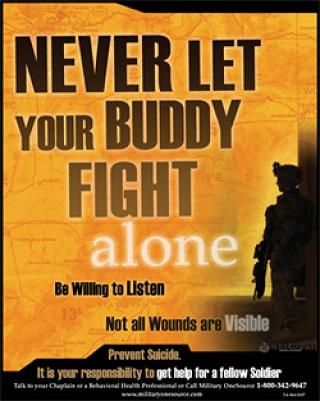
From the Journal of Studies on Alcohol and Drugs
By Mark A. Ilgen, Kenneth R. Conner, Marcia Valenstein, Karen Austin, Frederic C. Blow
Violence, not overdose, the likely method of suicide in veterans with substance use disorders
Veterans with substance use disorders who die by suicide are more likely to use violent means (such as a firearm) rather than nonviolent means (such as a drug overdose), new research suggests.
In a study of more than 5,000 Veterans Affairs (VA) patients with substance use disorders, researchers found that, despite having access to potentially lethal substances, 70% of those who died by suicide used violent means. The study was reported in the July issue of the Journal of Studies on Alcohol and Drugs.
This research is the largest known study of risk factors for suicide in individuals with alcohol or drug problems and one of the first to examine risk factors for suicide based on method of attempt. To perform the study, the researchers looked at two distinct groups. They identified 854 VA patients who died by suicide and had substance use disorders, as well as a control group of 4,228 VA patients with substance use disorders who did not die by suicide.
The researchers found that the people who committed suicide by overdose had more — and more severe — mental disorders such as depression or posttraumatic stress disorder than people who used violent means.
“What’s troubling about these findings is that some of the predictors that we typically think of as good indicators of suicide risk were not as closely related to violent suicide as nonviolent suicide, although violent suicide was the most common type of suicide,” said lead researcher Dr. Mark Ilgen, a psychologist at the Ann Arbor VA Health Care System and an assistant professor in the psychiatry department at the University of Michigan in Ann Arbor. “It’s potentially scary if there’s a group of patients that is somewhat large in number that we might be missing by paying attention only to psychiatric problems.”
The researchers say the findings highlight the importance of suicide prevention in people with substance use disorders. Previous research has found that people with substance use disorders are about 10 to 14 times more likely to die by suicide than people without these problems.
Ilgen said that substance use disorders and suicide are probably linked in several ways: First, people who develop a drug or alcohol addiction may already be at higher risk for suicide. Second, having a substance use disorder can cause problems at work and in relationships, which may increase suicide risk. Third, being under the influence of alcohol or drug can make someone more likely to engage in impulsive behaviors — such as a suicide attempt.
“Care providers should be aware of the high risk of suicide in this group and do an initial screening for current suicidal thoughts and plans,” said Ilgen. “It’s easy to wait to think about suicide prevention until someone is depressed, but it’s really a conversation worth having with someone who has a substance use disorder, since they’re already at risk.”
ATTENTION READERS
We See The World From All Sides and Want YOU To Be Fully InformedIn fact, intentional disinformation is a disgraceful scourge in media today. So to assuage any possible errant incorrect information posted herein, we strongly encourage you to seek corroboration from other non-VT sources before forming an educated opinion.
About VT - Policies & Disclosures - Comment Policy



